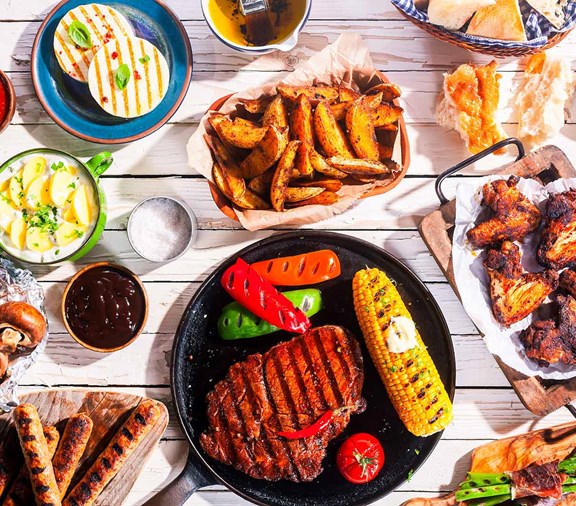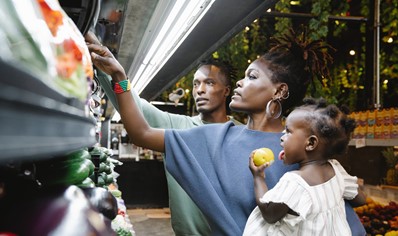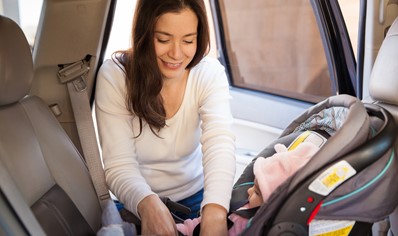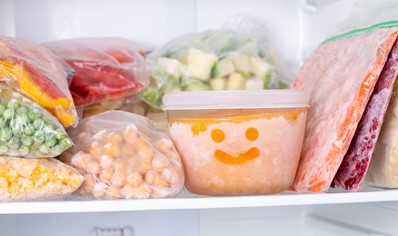
Late summer is the perfect time to enjoy meals outdoors.
However, on hot days, it’s more important than ever to follow food safety rules. Otherwise, bacteria inside and on the surface of food items can grow to dangerous levels. This can cause food poisoning and other serious illnesses in adults and children.
Be sure to protect food—and everything that touches it—when you are preparing or serving meals or wrapping up leftovers.
Just remember the four rules of food safety:
- Clean
- Separate
- Cook
- Chill
Clean
- When preparing food, wash your hands, counters, cutting boards, and all surfaces.
- Wash dishes and utensils after they touch each food item—especially meat and dairy.
- Before eating or chopping, rinse fruits and vegetables under running water.
- Before you open a can, wipe off the lid with hot water.
Separate
- Keep meat, seafood, and eggs separated from each other in grocery bags and the refrigerator.
- Use one cutting board for fresh produce and another cutting board for meat.
- If you use a plate to hold raw meat, seafood, or eggs, clean the plate thoroughly before you use it to hold cooked food.
Cook
- Use a food thermometer, especially for meat.
- Be sure to cook eggs completely, with no “runny” yolks.
- Reheating liquids, such as sauces, soups, and gravy? Bring to a full boil.
Chill
- Learn how to adjust your refrigerator temperature settings.
- Buy appliance thermometers and place them inside your refrigerator and freezer.
- Keep the refrigerator at 40°F or colder.
- Keep the freezer at 0°F or colder.
- Defrost foods only:
- in the refrigerator
- in cold water
- in the microwave
What about leftovers?
Sometimes food tastes even better the next day—as long as it’s been stored safely.
- Eating outdoors on days above 90°F? Move uneaten food to the refrigerator within one hour.
- When storing food in the refrigerator or freezer, use shallow containers.
- Use most cooked leftovers within four days.
- Reheat leftovers to 165°F. Use a food thermometer to check the temperature.
- If food is left out for more than one hour on hot days, throw it away.
For more helpful food safety information, visit the U.S. Food and Drug Administration.
Call the free 24-hour Nurse Line.
Have questions about food poisoning or an upset stomach? Are you feeling dizzy or weak—and worried you have a heat-related sickness?
Get professional help. Call the 24-Hour Nurse Line.
There is no cost to you for this Parkland Community Health Plan service.
- HEALTHfirst STAR Medicaid: 1-888-667-7890
- KIDSfirst CHIP/CHIP Perinate: 1-800-357-3162
- TTY 7-1-1



